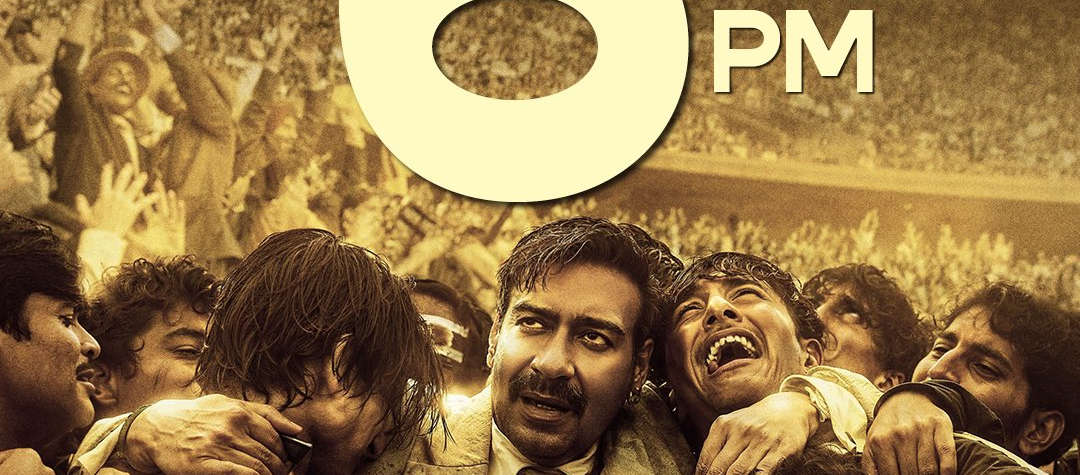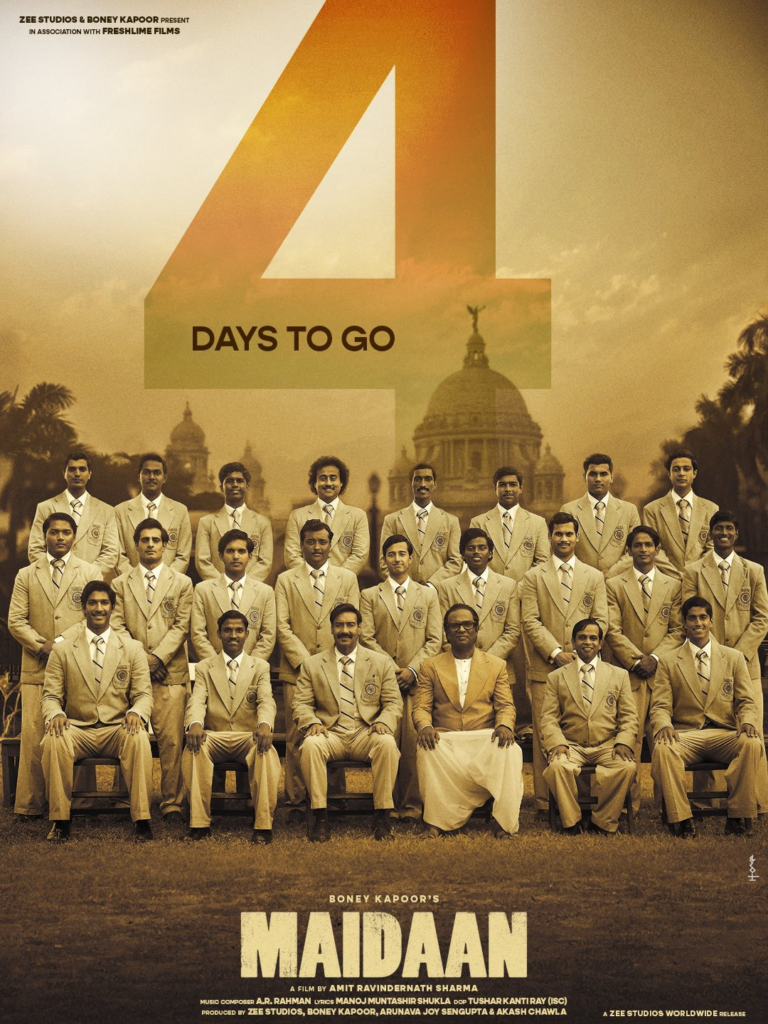


Sports underdog tales are both conventional and inspirational.
Vision is what sets the decent ones apart from the drags.
Mind-bogglingly lacking in logic is director Amit Ravindernath Sharma’s rambling account of how the dedication of an Indian football coach helped his side win gold at the 1962 Asian Games in Jakarta, Indonesia.
The same old problems that beset the sport, which generally enjoys widespread support in the nation although not the same level of nationalistic fervor, also beset newly independent India: internal politics, funding problems, inadequate training, and bad infrastructure.
In the face of uncertain circumstances and a humiliating 10-1 loss to Yugoslavia during the 1952 Summer Olympics in Helsinki, a resolute man offers his services to restore India’s reputation.
Maidaan celebrates the accomplishments of football coach Syed Abdul Rahim and his tireless work from 1950 until his passing in 1963, a period widely acknowledged as the golden age of our sport.
The stories written by Saiwyn Quadras, Akash Chawla, and Arunava Joy Sengupta are based on true occurrences, but they follow a formula whose crowd-pleasing strategies are so well-defined that even someone who is not familiar with the story’s background may easily predict the ending.
Ajay Devgn as Syed Abdul Rahim is perched in a corner of a boardroom in Kolkata’s All India Football Federation, surrounded by energetic babumoshais (of whom Rudranil Ghosh is particularly noticeable and irritating) arguing in an awful Hindi-Bangla mixture.
Putting away the chaos in the room with the same nonchalant air and deadpan face he’s perfected since 1991, Devgn steps into his persona: Devgn as Devgn.
He persists and takes on the task of assembling a squad that will pull the trigger if you want me to shoulder the blame—just on my terms.
Although you would imagine that scouting for players all throughout India would provide an insight into a variety of backgrounds and playing styles, Maidaan provides no compelling logic for Rahim’s choice of players or their characteristics.
We never learn their strengths or weaknesses or what motivated Rahim to select players other than adaptable, skilled multitaskers.
It is unfortunate that five legendary athletes—P K Banerjee, Chuni Goswami, Tulsidas Balaram, Peter Thangaraj, and Neville D’Souza—are regarded as an unremarkable group in Maidaan, which chronicles India’s lackluster performance in Melbourne and Rome in 1956 and 1960, respectively, during the Summer Olympics.
Although the young men portraying these legends look sincere enough, their emotional spectrum is restricted to sincerity.
With all eyes focused on the Indonesian capital for the 1962 Asian Games, Maidaan finds its ridiculous conflict in the unreasonable hatred of Rahim harbored by a sly sports journalist.
A pipe-puffing evil lord from a Dickens tale, Gajraj Rao’s hammy rendition of this strangely influential character smokes and schemes his way through cliché and caricature.
The result is more soap opera than sports due to the man’s ridiculous plan to humiliate Rahim to the extent of endangering India’s chances in a very heavy-handed manner.
Rahim’s private life is seldom mentioned in Maidaan.
There’s no camaraderie between his son Rishab Joshi’s dejected attempts to impress his indifferent father and his wife Priyamani’s determination to learn English.
The same apathy permeates Rahim’s poorly expressed movements and tactics in the football pitch.
In light of the federation’s unwillingness to appoint a Muslim coach, the difficult task of guaranteeing a young team’s triumph in a situation where both the coach and the game are necessary, Maidaan’s politics about the marginalized are all too conflicted.
In contrast to the genre standard Chak De! India, which boasted a plenty of content on numerous fronts, including a beleaguered Muslim coach, a rowdy squad and its individual problems, inspirational speeches, theoretical strategies and their real-world application…
Or Jhund’s fervent demonstration of underdog gusto, in which a group of gullible kids showed that they could play a game with more spin than NFL players…
Or even ’83’s throwback perspectives on India’s historic upset win—Maidaan’s dreary proceedings go on for three long hours and don’t really show off the hardships of its predecessors.
Whether it’s the hardly perceptible ageing and passing of time or a dull commentary box that could borrow a page from Amar’s enraged football of sherbet glasses, Maidaan’s sleepy soccer makes people yawn more than they exclaim.
A R Rahman’s powerful music and elegant background score give Maidaan its high points, frequently turning the script’s emptiness into something meaningful.
The beautiful vintage artwork by Tushar Kanti Ray melds in perfectly with the sharp photos of the action-packed game and its sports director of photography, Fedor Lyass. India’s crucial final matchup with South Korea is undoubtedly one of its best. However, these are merely decorations for a subpar dish.
Serving us more of the same crass fare, racist white players use their power to intimidate a squad that has just been granted independence from colonial rule, Indian rioters treat Indonesia harshly, and Devgn dribbles from a committed to Devdas fan base.
It’s another cheesy, hyper filmi biography, channeling the martyr spirit of old Bollywood heroes who would bravely stay put even while they were writhing in agony.
When the genuine faces behind that historic victory reappear in all of their former grandeur, Maidaan is at its purest. Regretfully, it marks the conclusion of what may have been a start.
Maidaan Movie Gig Connects Rating 3 Stars***
I give it 3 for an honest effort and overall a well made movie .


























































